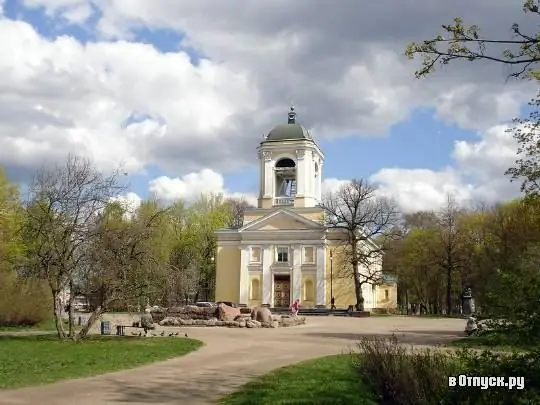
Description of the attraction
There are many churches in Vyborg, but the Lutheran one is the Church of Saints Peter and Paul. The community itself arose in the city in the 16th century, absorbing the ideas of the founder of Protestantism, Martin Luther. But at that time, members of the confession had to huddle in retouching. Services were held in one of its halls. But soon a place was found in the former building of the church of the Dominican monastery. However, the parishioners could not feel the fullness of church life without their own premises. Only in 1783, thanks to the care of Governor Engelhardt, and his petition to Empress Catherine II, began fundraising for the construction of the shrine. Donations were collected by the communities of St. Petersburg, Tartu, Narva and Riga. And the unification of the Swedish and German communities further spurred the faithful to have their own building for worship.
In 1793, the first stones were laid on the territory of the northeastern curtain of the Horned Fortress. The author of the first project was the architect Johann Brockman, after which Yuri Matveyevich Felten joined the work. The construction of the temple was carried out with difficulties, as a result of the fire, building materials burned down, new ones had to be purchased from Russia and Finland. The builders did everything for centuries, for example, the Arkhangelsk oak was used to make the main doors of the church. The altar was decorated in the style of Louis XIV, and the choir was decorated with artistic carvings.
In June 1799, the church was consecrated in the name of the apostles Peter and Paul. After 40 years, organ music began to sound in the church. The best musical instruments were purchased for the temple, and everything from the decoration to the altar was done at the highest level. But the descendants of the next generation could not appreciate all this - the era of atheism began.
The time of God has left its mark on the decoration of the church. Here worship ceased, the buildings were used as a club, and unique musical instruments were destroyed. The abused shrine parted with its decoration, the utensils were stolen.
Only in the 1990s did faith begin to flourish among people, including the Lutheran. In 1989, at a meeting, Protestants decided to create an Evangelical Lutheran community. Then it consisted of only 16 people. The first divine services were held at school No. 10 in Vyborg. And in 1991 the church building was returned to the believers. The consecration of the shrine became the second birth of the Church of Saints Peter and Paul. The rector of the church, Aimo Kyumäläinen, conducted the ceremony and helped to restore the temple. Gradually, the church of Peter and Paul regained its original appearance: an altar was brought from Estonia, a bell was installed, and organs were purchased. The heyday of the Lutheran community is at its perigee - again organ music sounded under the arches of the shrine, and the gospel began to call people to the service.
Nowadays, 3 pastors and a deacon hold services daily in the Church of Saints Peter and Paul. The parish is nourished by its rector and spiritual father Vladimir Dorodny. Prayers are sung in Russian, but if necessary, the chants are translated into Finnish. The parish expanded to 300 people. Particular attention is paid to the spiritual education of young people: there is a children's Sunday school, camps are held. Charitable and missionary work is also part of the larger work of the ward. In addition to divine services, spiritual choir and organ concerts are held here, which help parishioners understand the meaning of faith.
The temple itself is an architectural landmark of Vyborg. On the square near the church, there is a monument to the clergyman who made a great contribution to the development of the shrine, Bishop Michael Agricola.






